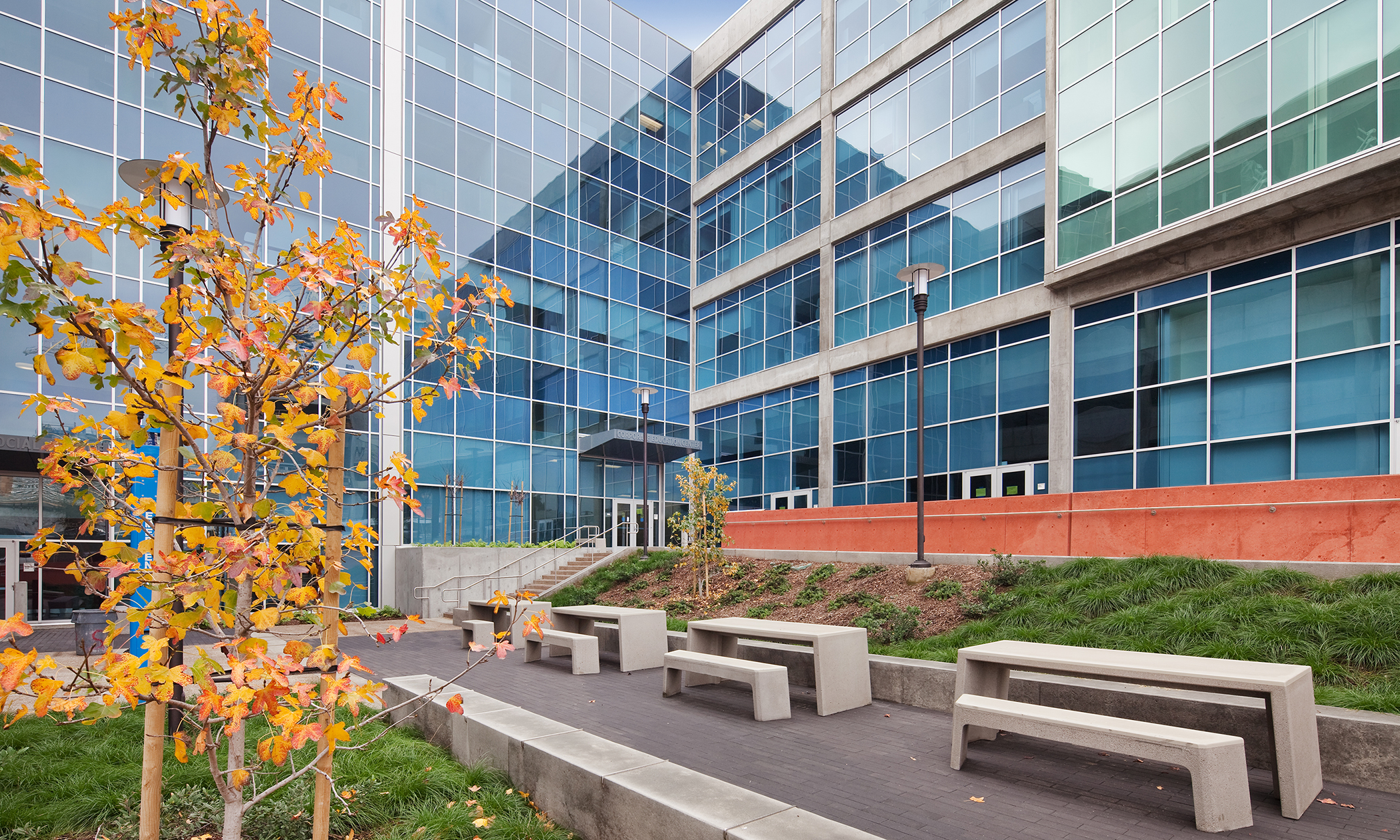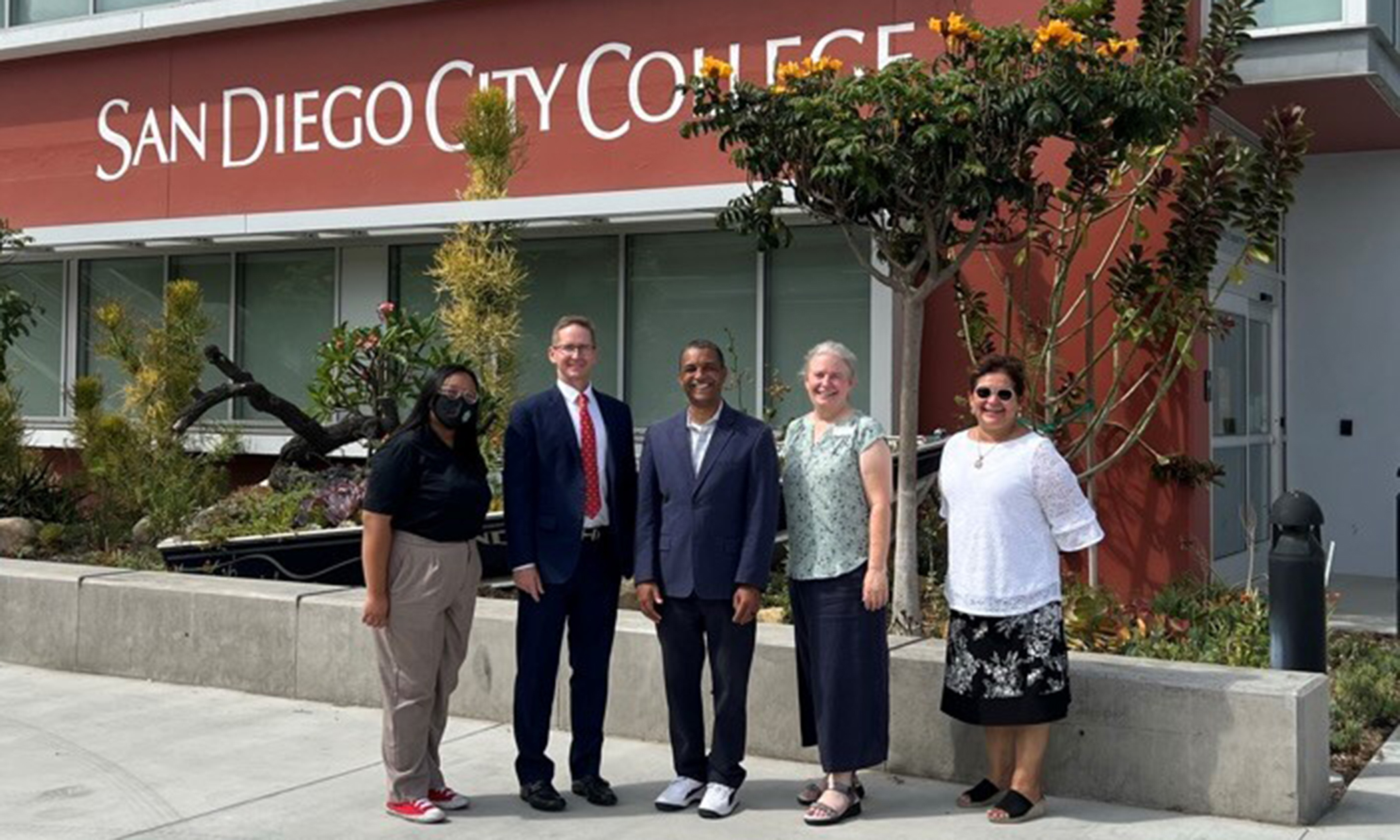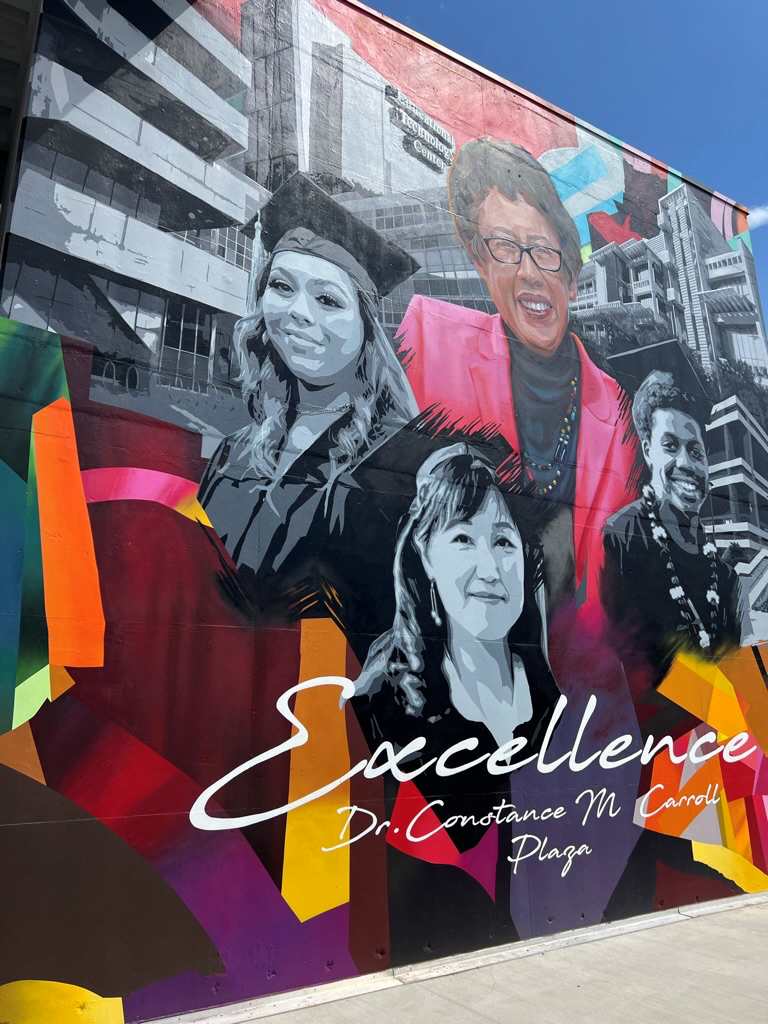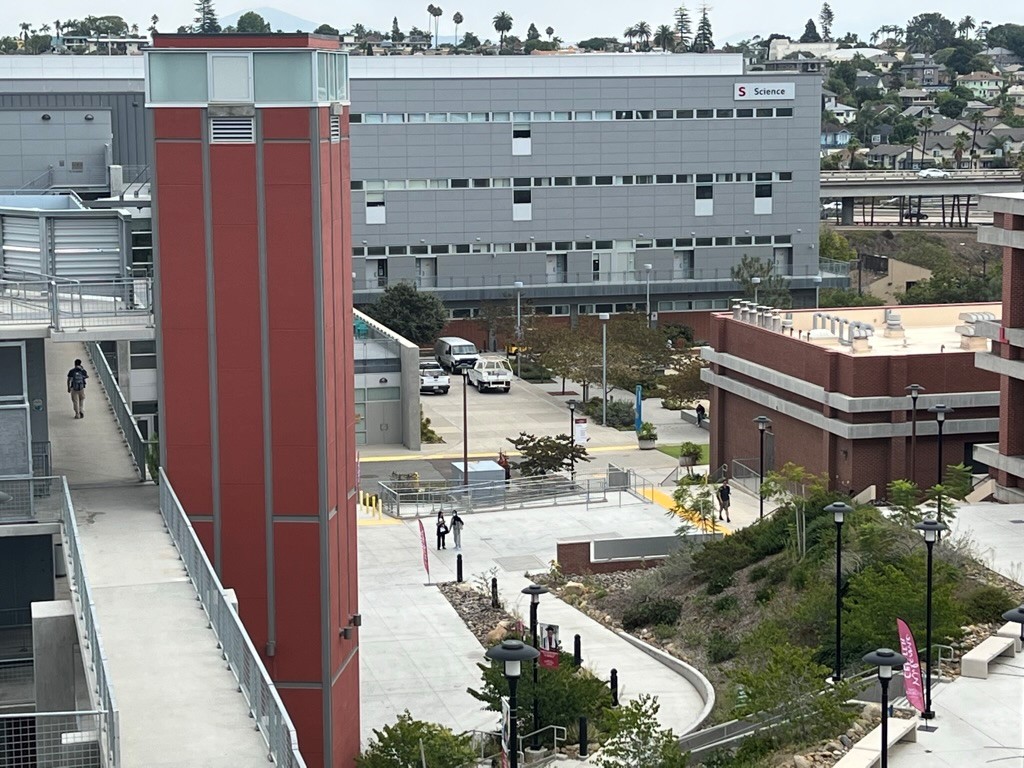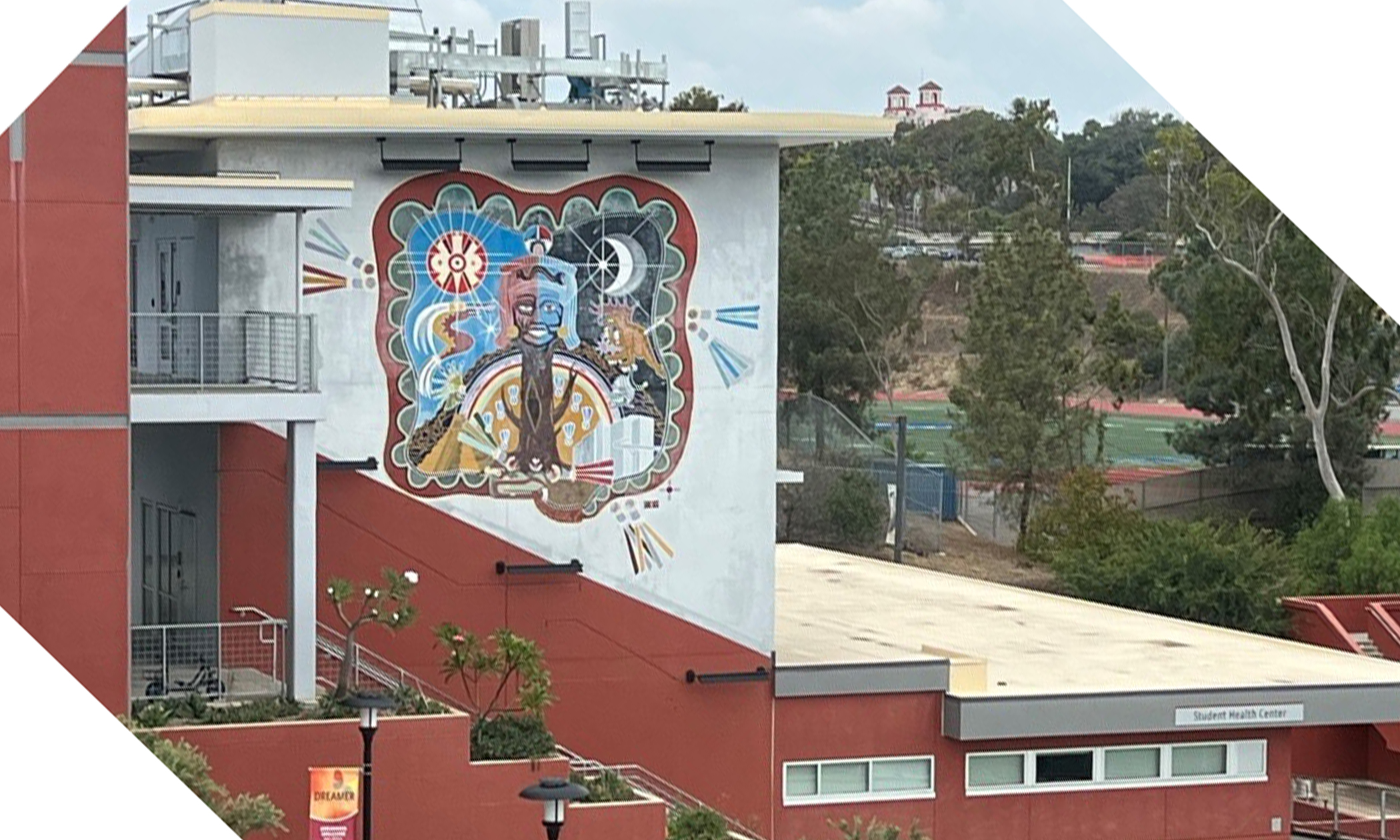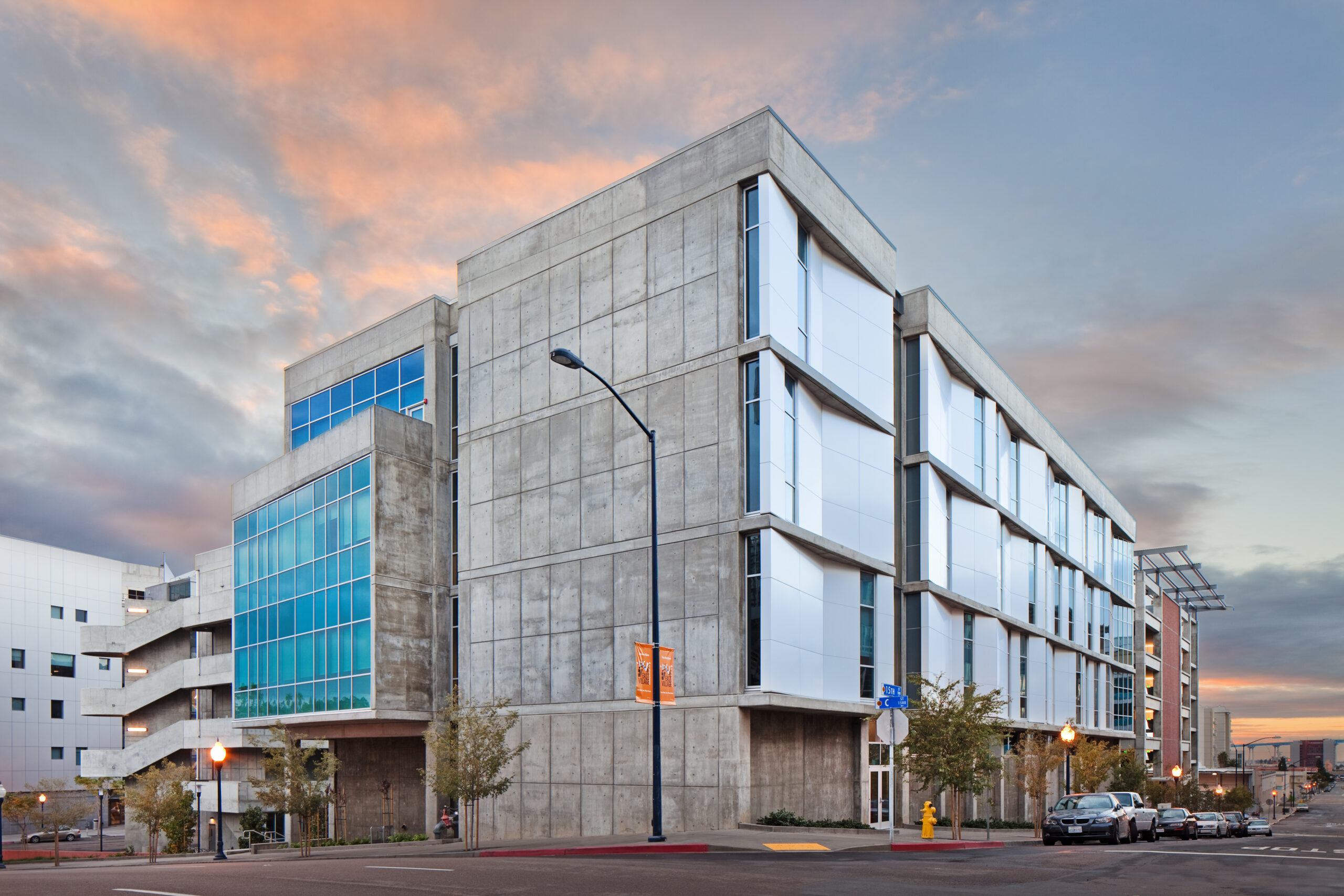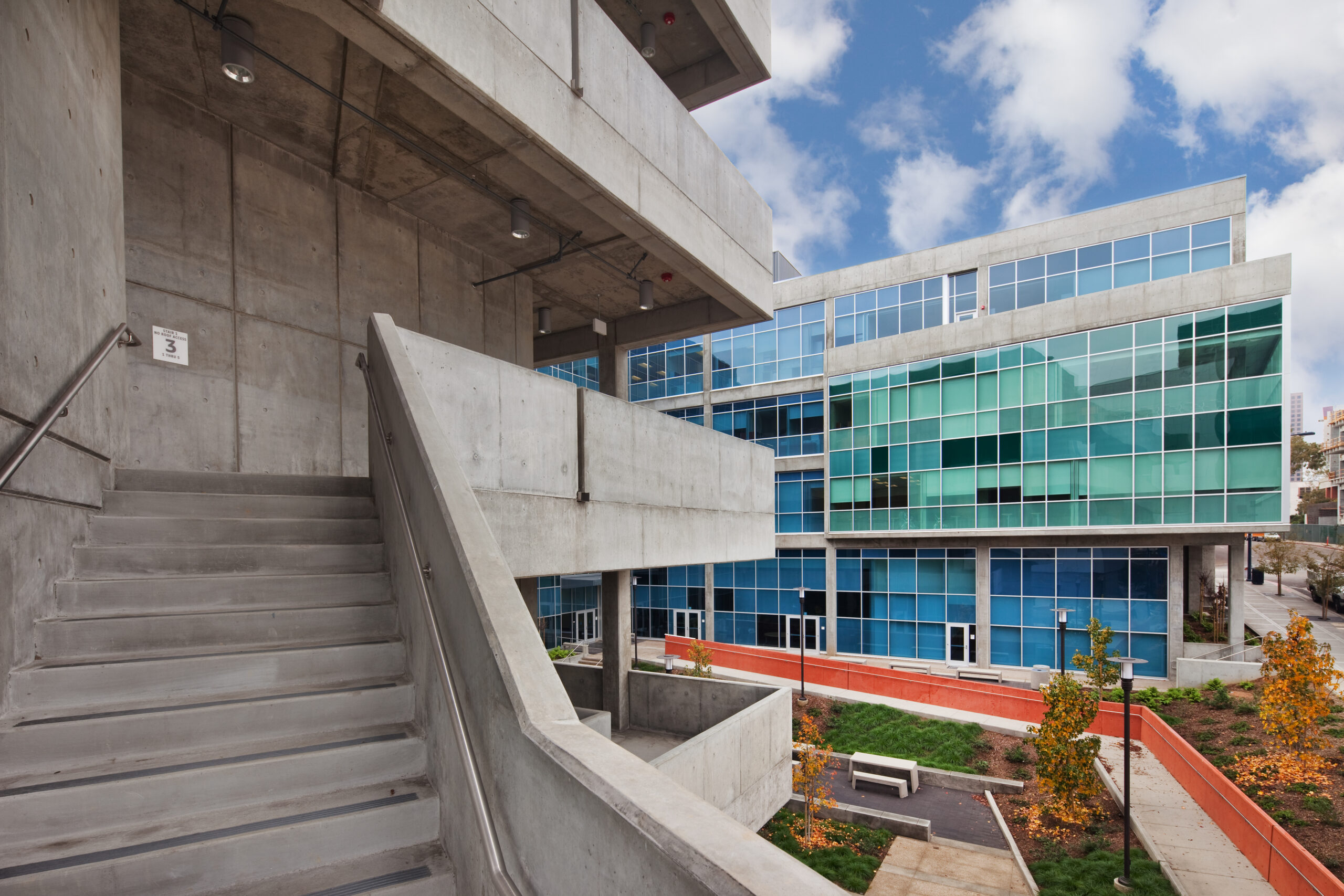San Diego City College (SDCC) is one of three colleges in the San Diego Community College District serving over 13,000 students in downtown San Diego. SDCC received its initial accreditation in 1952, and today in one of the fastest growing community colleges in the nation.
During my visit to San Diego City College, I had the pleasure of touring the modern urban campus with college president Dr. Ricky Shabazz, students, and members of the faculty and staff. Under Dr. Shabazz’s leadership, the college is continuing to build an inclusive, high-quality learning culture to meet the needs of a diverse community of students and dismantle systems and structures that have negatively impacted opportunities for success for all.
An exceptional example of the college’s commitment to its students’ achievement and overall wellbeing is its embedded mental health initiative. SDCC has a well-established mental health program, integrated within its student health center, where students have access to physical and mental health services, and personal, academic, and social support. Since 2020, they have collaborated with the math department to embed mental health counselors and education into the college’s introductory math courses.
The initiative was developed under the leadership of Leslie Easton, LCSW, SDCC’s mental health director of over 20 years, and her vision for the mental health counseling department to be a proactive and engaged presence across the campus. Math course completion was identified as a barrier to transfer/graduation, particularly for historically marginalized student populations, and so the math department and mental health department leadership began to develop this collaborative initiative. Ms. Easton and previous math department chair, Carlos de la Lama, brainstormed and worked out the details of the embedded counselor program, and then promoted the collaboration to math instructors. Nadia Sayeh, LMFT, is one of the counselors embedded within the math department and coordinates much of the program. She partners with math faculty to provide regular mental health education, resources, and practical tools for students to utilize such as grounding and breathing exercises, coping skills, and anxiety management skills. The collaboration and resources have also been adapted for hybrid and online courses. The goal is to support their success in math, but also their overall wellbeing.
“The SDCC counseling department is committed to early intervention and proactive engagement with students. The math collaboration has helped us connect to new students, reduce stigma, and normalize mental health support. Students have also expressed how helpful it was to have met a counselor and learn more about the counseling center before seeking out services, it has really reduced fear and anxiety about getting help,” said Sayeh.
The mental health counseling department is also very proud to share that they are a very busy and engaged student service, and they do not have waitlists. When a student needs support, they make sure they are available.
“Here at SDCC, it is our hope and goal that students have the resources they need to transfer, graduate, or earn a certificate, and mental health support is a critical component. We embed tutors for academic support, why not embed mental health workers for that additional support many students need”, said Marciano Perez, vice president of student services.
Clara Mateo is an assistant professor of mathematics and one of the math faculty who volunteered to participate in the collaboration. She has noticed positive outcomes in her students and notes that many are more focused, engaged, and are following up about resources. “We are all trying to support our students’ holistic wellbeing and let them know we care. Anyone at any time can reach out for support, it doesn’t just have to be in times of crisis,” said Mateo.
SDCC staff and faculty have been tracking the outcomes of the math/mental health collaboration and recently presented their work and data points at the American Association of Community Colleges 2023 annual conference. They are excited to share:
From Pre and Post-Surveys (Likert Scale-5 pt.):
- I worry about taking math classes (agree & strongly agree) decreased 17.51%
- I get tense/feel anxious when I need to prepare for a math test (agree & strongly agree) decreased 5.49%
- I believe I can be good at math (agree & strongly agree) increased 11.09%
- I feel that I will be able to do well in future math courses increased 8%
From Post-Survey:
- I would recommend this workshop to others 89.65%
Academic Outcomes:
- In Fall 54.6% success (passing) rate in treated (participating) sections vs. 41.5% success (passing) rate in untreated (non-participating) sections.
- In Spring 59.4% success (passing) rate in treated (participating) sections vs. 43.8% success (passing) rate in untreated (non-participating) sections.
- Overall students in treated (participating) sections were 91.6% more likely to experience an increased success (passing) rate.
- In most treated (participating) sections, minority ethnicities mirrored a success rate to non-minority ethnicities.*Minority Ethnicities per Office of Institutional Research includes: American Indian/Native American, Black/African American, and Latinx.
* Data was provided by the SDCC Office of Institutional Research.
Students have also shared feedback with the college about their experiences in the math/mental health collaboration:
“Sometimes we think we’re the only ones struggling, but by everyone sharing not only does it create a connection with our classmates, it lets us know we will get through it together.”
“For me it was useful learning ways to manage my anxiety around math. It was nice to learn more about the support I have on campus to ensure I succeed in whichever classes I am taking, including math.”
Due to the success of the mental health and math collaboration, the college is piloting embedded mental health programs within their student athletics program, nursing program, and UMOJA, Puente, and City Scholars student groups. They work to match groups with counselors who the students will identify with, and who understand, firsthand, the unique needs of the particular community with whom they are working.
To learn more about San Diego City College, visit their website at https://www.sdcity.edu/.
